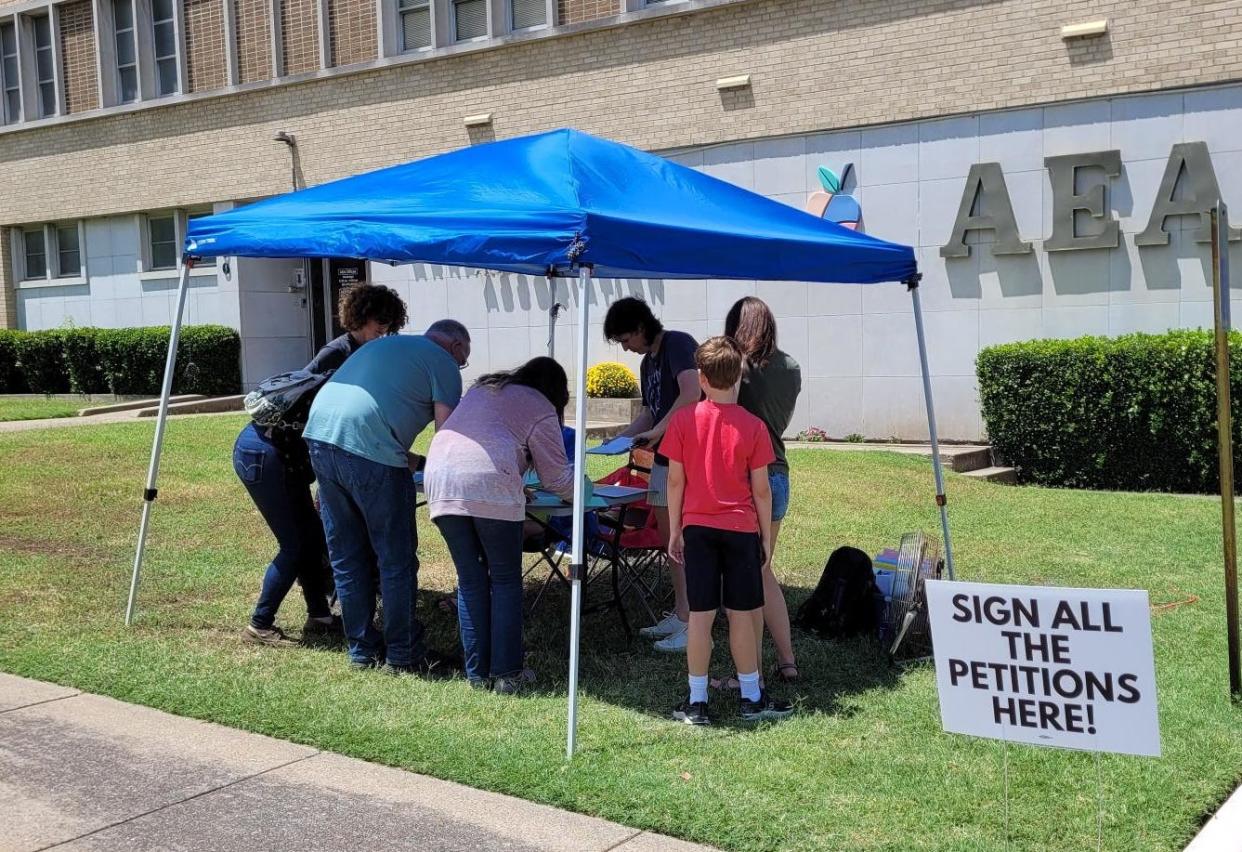Legal battle continues over Arkansas abortion amendment

The state of Arkansas and the organizers of an effort to put abortion access before voters in November continue to wrangle in court over whether the Secretary of State's office acted within its legal authority in throwing out the measure.
In a Monday legal filing, Secretary of State John Thurston denied allegations his office acted "unlawfully" when rejecting the ballot measure.
Thurston addressed factual claims in the lawsuit brought by Arkansans for Limited Government and reiterated his position that the committee cannot be granted legal relief.
The Arkansas Supreme Court on Friday ordered Thurston's response by Monday as well as further briefs, setting deadlines of Aug. 2 and 9 for both parties.
How many signatures did Arkansans for Limited Government collect?
Still, Thurston's office was ordered Tuesday to do an initial count of signatures collected by volunteer canvassers in response to Arkansans for Limited Government's motions to expedite the case and for emergency relief.
That count, which was finished Thursday, found that signatures collected by volunteers amounted to nearly 88,000, higher than Arkansans for Limited Government's previous estimate.
The total initial count, including signatures collected by paid canvassers (subject to additional paperwork that's the crux of the legal battle) is 102,730, exceeding the qualifying threshold of 90,704.
The Supreme Court has yet to rule on the central issue of the case, which is whether the signatures obtained by paid canvassers are legally acceptable in this instance and if the committee is entitled to a 30-day cure period.
Rebecca Bobrow, director of strategy for Arkansans for Limited Government, said Monday she was “frustrated” with Arkansas Attorney General Tim Griffin’s assertions that the group failed to meet requirements to be on the ballot in November. That, she said, “is not true."
"No determination has been made” in court," she said.
“His statements have made it seem like it’s over and that’s certainly not the case,” she said.
Arkansans for Limited Government said in a written statement it was “looking forward to our opportunity to once again demonstrate to the Supreme Court that the Secretary of State has acted unlawfully.”
Attorney General’s motion to dismiss
Griffin filed a motion to dismiss the suit on July 19, citing the ostensibly incorrect paperwork in his decision to reject the petition on a technicality and decline to start an official count of the signatures.
"AFLG’s petition falls short and further proceedings would be futile," the attorney general's filing reads. "The Court should therefore decline to require further merits briefing, deny the requested relief, and dismiss this case."
A week later, on Friday, after the Supreme Court issued its order for Thurston, Arkansans for Limited Government said in a written statement that the group "fully complied with the law governing ballot initiatives and we intend to demonstrate that again to the Supreme Court."
A representative from the Secretary of State's office declined to comment on Monday.
What is the lawsuit about?
The suit, in part, asked the Supreme Court to order the state "to complete the counting, verification, and certification process in the original time-frame set forth in law.”
“Each day that passes without the counting and verification of signatures makes it more unlikely that certification can occur by the August 22 deadline,” it reads.
Soon after Arkansans for Limited Government submitted its signatures, Thurston said that the group had not filed certain accompanying paperwork correctly.
He said in a letter that that "require(s) me to reject your submission outright."
The committee's executive director Lauren Cowles wrote in a July 11 response, "Contrary to your claim, AFLG met the requirements."
She said the committee had in fact submitted the documentation for paid canvassers both in late June and again on July 5 with the signatures.
“My position remains unchanged,” Thurston said in response, citing two technical issues. “Each of these defects independently required me to reject your petition."
What is in the amendment and what happens now?
The amendment, if approved by voters, would legalize abortion up to 18 weeks from fertilization, in cases of rape, incest, fatal fetal anomaly and to save the health of the mother.
Abortion is currently illegal in Arkansas except to save the life of the mother in a medical emergency.
Arkansas is rated the most abortion-restrictive state in the country by pro-life organizations including Americans United for Life.
The extra requirements for paid canvassers at issue were added in 2013, soon after Republicans took control of the state House for the first time in decades, though that legislation had Democratic sponsors and passed with bipartisan support.
This article originally appeared on Fort Smith Times Record: Arkansas abortion measure: Legal wrangling continues over signatures

